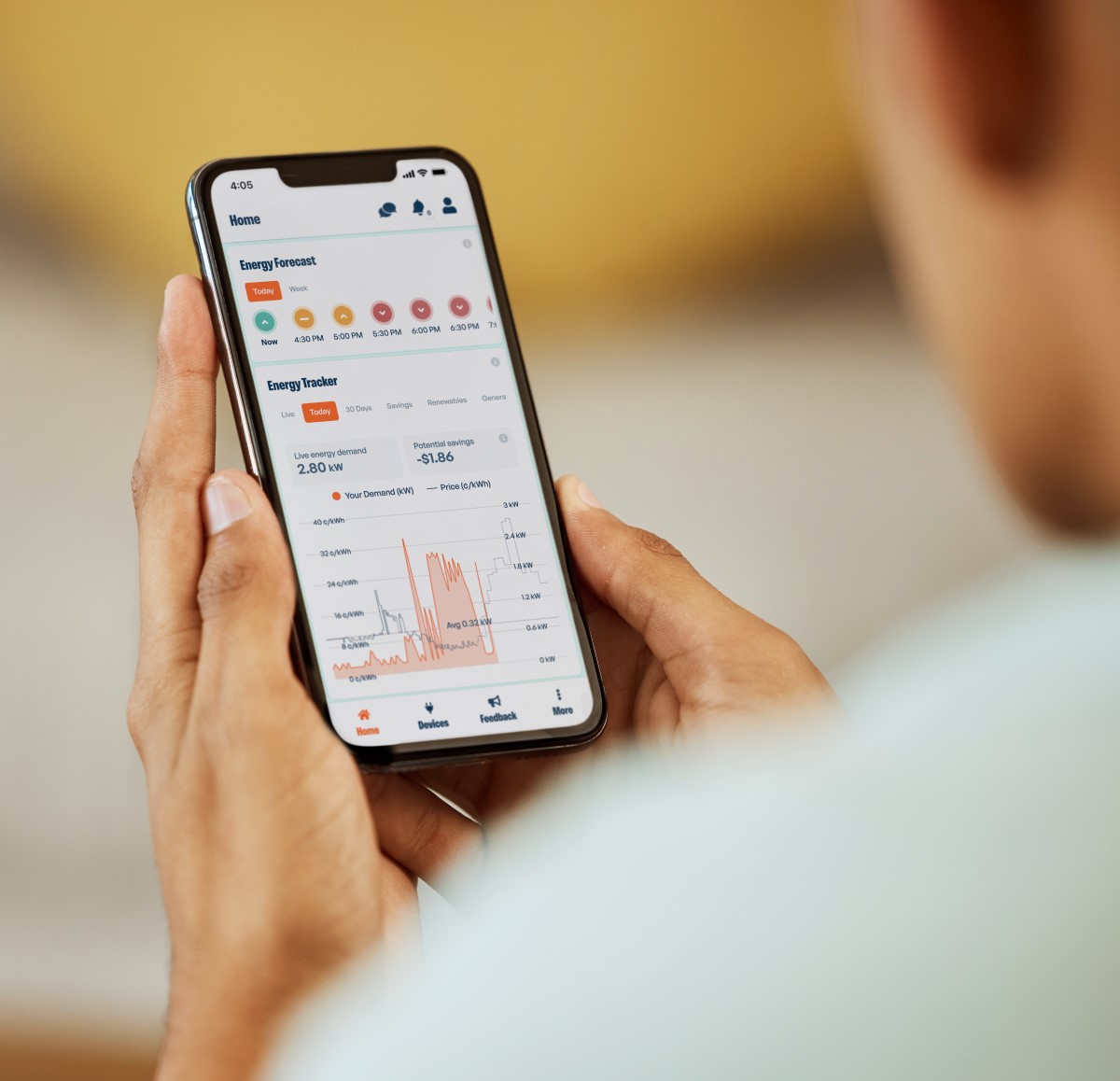21 February 2025, 4 mins
Did you know that in Australia, wholesale electricity prices can drop dramatically, even to negative prices, often when renewable generation is flooding the grid.
This abundance of renewable energy, combined with how little it costs to produce in comparison to other energy types, drives wholesale market prices down.
But this cheap, clean energy comes with a catch.
Unlike water, which sits in a reservoir waiting to be used, energy is generated on demand.
And while many Australians have invested in solar panels, which let them generate and use this renewable energy, Australia lacks adequate storage capacity.
So, to benefit from low-cost renewables, we need to make a habit of using it when it’s available.
But not many Australians know this.
Instead, the majority use energy in the early mornings or evenings, when renewable energy generators can’t contribute as much to the grid and therefore expensive and polluting coal-powered generators are relied upon to meet the demand. This lack of competition drives up prices in the wholesale market.
This price volatility causes traditional electricity retailers to set high, fixed electricity rates to on-charge their customers.
This approach doesn’t encourage energy users to use the abundant renewable energy in our grid, nor does it create an incentive to use less fossil-fuelled energy at peak-times.
In the long term, this could mean Australia won’t be able to transition to 100% renewables, leaving Australians dependent on expensive and polluting forms of energy.
So how can we encourage Aussies to shift their energy usage to cheaper, greener times?
By rewarding them for doing so.
To encourage energy use during these highly renewable periods (and discourage energy use during fossil-fuelled peak-times) we’ve developed a unique incentive.
Every month, Flow Home customers receive an adjusted electricity rate based on their energy habits. The more they shift their electricity use to times when renewable generation is high and wholesale electricity prices are low, the lower their electricity rate.
How our pricing works

Listen to the discussion on how Flow Power are empowering households to play a pivotal role in Australia's energy transition.
Read more
“We can see the positive, especially with the current cost of living. It’s good to know the power bill is lower.”
Read more
Flow Home's bringing power to the people of Newstead.
Read more